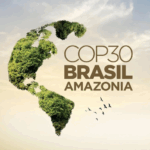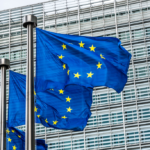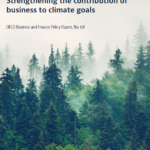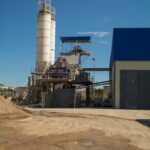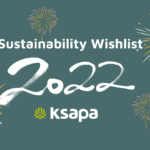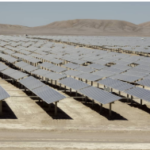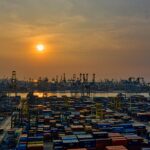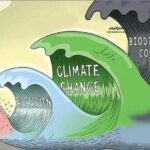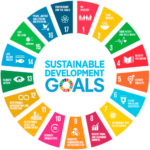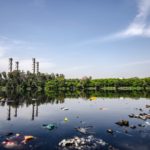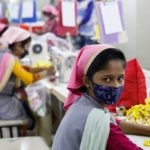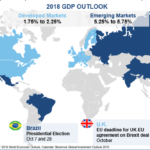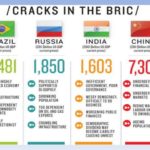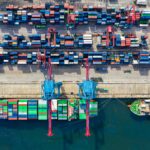CS3D, Deforestation, Social Taxonomy, Forced Labor, MACF… The year 2023 is rich in legislative developments carried by the European Union. This article gives an overview of the state of play of the main sustainability regulations that affect all companies with more than 250 employees. These legislative acts are for the most part in the legislative process. Other sustainability regulations are in force or in the process of being established. For example, the EU strategy for sustainable and circular textiles, the draft regulation from farm to fork, the draft regulation on the shipment of waste to third countries, the EU strategy for biodiversity by 2030, etc. These initiatives will not be detailed here, as this article is not intended to be exhaustive.
1. The proposal for a directive on Corporate Sustainability Due Diligence (CSDDD)
Presented by the European Commission to the European Parliament and the Council on February 23, 2022, the proposal for a directive on corporate sustainability due diligence has two main objectives. First, it is to create an obligation for parent companies to be accountable for actual and potential negative impacts on human rights and the environment, with respect to their own activities, the activities of their subsidiaries, and the operations of the value chain carried out by entities with which these parent companies have an established business relationship. On the other hand, it also aims to define the rules for the liability of the companies subject to the directive in case of failure to comply with these requirements.
In its operation, the directive imposes in its article 4, under the Duty of Diligence, an obligation not only to integrate due diligence in the company’s policies and to communicate it to the public, but also to identify, prevent and mitigate actual or potential negative impacts, and to put an end to actual negative impacts. In addition, they must establish and maintain a grievances mechanism and communicate publicly about their due diligence policy. In this respect, Ksapa has assisted several companies in defining effective due diligence policies in accordance with the standards that underlie the European directive.
The directive concerns both European and non-EU companies.
For EU Companies are concerned by the directive:
- Companies that for the previous financial year have capitalized a net turnover of more than EUR 150 million , for a total of more than 500 employees.
- Companies that for the previous fiscal year have capitalized a net turnover of more than 40 million euros(without reaching 150 million euros), for a total of more than 250 employees, provided that 50% of this turnover has been realized in one or more of the sectors of textiles, leather goods and related products; agriculture, forestry, fishing, etc.; exploitation of mineral resources,
For non-EU companies, the directive applies to:
- Third country companies generating a net turnover of more than EUR 150 million in the Union in the financial year preceding the last financial year;
- Third Country companies generating a net turnover of more than EUR 40 million but not more than EUR 150 million in the Union in the financial year preceding the last financial year, provided that at least 50% of its net worldwide turnover was generated in one or more of the above mentioned high-risk sectors.
In its compromise to be submitted to the Parliament for negotiation, the Council has introduced a phasing-in clause for a period of three years from the entry into force of the directive. Because of this phasing-in period, the above application criteria will only apply at the end of this period. Therefore, instead of one fiscal year, the requirements of turnover and number of employees must now be met for the last two years for its effective application. Indeed, the rules of the proposed directive will apply first to very large companies with more than 1,000 employees and a worldwide net turnover of EUR 300 million, or 300 million net turnover within the Union for non-European companies, three (03) years from the entry into force.
The Directive on Corporate Sustainability Due Diligence, in relation to the French due diligence is fundamentally innovative in two aspects. First, it requires directors of large companies to integrate sustainability risks into their management decisions. Second, the directive also requires companies subject to the directive to adopt a climate change plan that integrates the impact of climate change risks on the company’s activities.
Discussions on the proposed directive have not progressed much since it was proposed on February 23, 2022. The recent update relating to this directive was a general orientation for the Council, and adopted by the Standing Committee of Representatives on November 30, 2022. It will thus have to pass in the next few months in the Council and the Parliament for its final adoption. After its adoption, the Member States will have two years to transpose it into their national legislations.
2.The proposed regulation on products derived from deforestation
The proposed Zero Deforestation Regulation aims to limit deforestation and forest degradation caused by the expansion of agricultural land to produce certain commodities, such as beef, cocoa, coffee, palm oil, soy, timber and rubber. In terms of scope, the proposal will primarily apply to operators who place these commodities and certain derived products on the EU market or export them from the EU to ensure that their products are not directly or indirectly linked to deforestation or forest degradation activities. The directive impose on companies the following constraints:
- due diligence obligations, depending on the level of risk per country and per raw material,
- identification of all the plots of land on which the imported, processed or exported raw materials were produced (GPS coordinates, etc.)
The draft regulation is expected to follow this implementation schedule:
- November 17, 2021: Publication of the draft regulation by the European Commission, followed by an amending proposal by the European Parliament on September 16, 2022,
- Agreement between the Parliament and the Council on the deforestation regulation reached on December 6, 2022, and currently in the hands of the Commission,
- End of 2023: publication of additional regulatory texts,
- End of 2024 (1 year after publication): implementation of the regulation.
3. European initiative on forced labor products
Introduced on September 13, 2022, the proposed regulation on forced labor products aims to prohibit the entry of products that are directly or indirectly derived from forced labor into the EU market. Unlike the American law on forced labor of Uyghurs in the Xinxiang zone, the European initiative concerns all products regardless of their origin.
The implementation of the regulation will rely primarily on national authorities. First, on the basis of information that may come from different sources, national authorities will carry out an assessment of the risks of forced labor of products entering or leaving the EU at the border. On the basis of this preliminary analysis, the national authority may investigate the company in question or a third country in order to conclude whether or not forced labor was involved in the production of the product. In the event of a positive conclusion, the national authority may prohibit the import or export of the product in question, order its withdrawal from the EU territory, or order the destruction of the product at the expense of the economic operator, or the removal of the product from the market.
The proposal for a regulation is currently undergoing legislative procedure. It will soon have to be examined by the Parliament and the European Council before coming into force. The directive will effectively apply 24 months later. But before its effective application, the Commission will publish guidelines for the application of the regulation within 18 months from its validation. The purpose of these guidelines will be to provide guidance on due diligence in relation to forced labor and information on risk indicators for forced labor.
4.The draft regulation on social taxonomy
Like the green taxonomy, the social taxonomy aims to establish criteria for the sustainability of companies’ activities in terms of human rights. Its purpose is to provide investors wishing to invest in social impact assets with the necessary information.
The draft social taxonomy regulation defines three main social objectives with sub-objectives for each main objective.
The three main social objectives defined by the draft regulation are:
- Ensure decent work along the value chain,
- Promote adequate living standards and well-being of users,
- Building inclusive and sustainable societies and communities,
To be considered a sustainable activity under the social taxonomy, as with the green taxonomy, the activity must pass a three-level test:
- First, the activity in question must be aligned with one of the three social objectives,
- Second, the activity must not cause harm to another social objective,
- Finally, the activity must meet the technical evaluation criteria both at the level of the primary objective and at the level of the sub-objective within which the activity falls.
The final report on the social taxonomy was published in February 2022. The next steps regarding the implementation of the taxonomy will essentially consist of the clarification of the minimum social guarantees, the conditions accompanying the other alignment conditions, the justifications for the prioritization of the environmental objectives and sub-objectives.
But above all, the report of the platform on sustainable finance must be analyzed by the Commission in order to be the subject of a legislative proposal. After validation by the Commission, the proposal must follow the ordinary legislative procedure by passing through the Council and the Parliament for its effective adoption. Thus, according to some experts, given the complexity of the social taxonomy, there is still a long way to go and a social taxonomy similar to the green taxonomy should not be expected before 2024 or 2025.
5. The Carbon Tax at the EU’s borders (MACF)
Better known as the carbon tax, the MACF is part of the European green deal program and aims to level the playing field between European companies subject to a strict carbon emission regime and foreign producers exporting to the EU whose carbon emission regulations are deemed insufficient. In doing so, the MACF aims to impose a tax on certain products (steel, aluminum, fertilizer, cement, electricity) originating from non-EU countries that reflects their carbon footprint.
The MACF project has been in the pipeline of the EU decision-making bodies since 2021, but on 13 December 2022, the Parliament and the Council reached an important breakthrough. The MACF will come into force in October 2023 with a transitional period from 2023-2026. The full implementation of the mechanism is thus expected for 2027.
Conclusion
The broad analysis of the EU sustainability regulatory framework leads to two main findings.
- First, the EU is placing greater emphasis on climate change mitigation, as evidenced by the large number of climate change-related regulations and initiatives. As a result, social ambitions and the other objectives of the United Nations Sustainable Development Goals (SDGs) seem to have a lower priority.
- The second observation is the articulated but asynchronous nature of this framework. Indeed, although the whole is intended to be coherent, the lack of temporal coordination between the different regulations makes the proper functioning of these regulations complex. The result is uncertainty as to the application of these instruments, making the risk of greenwashing real, as shown by the first reports on the implementation of the taxonomy and SFDR regulations.
While the EU is committed to tightening its regulatory reporting framework and leadership in sustainability, its American and Chinese counterparts are taking a competitive approach. Indeed, the US has recently adopted a vast energy transition program through the Inflation Reduction Act (IRA). Aimed at ensuring an energy transition towards renewable energies, the IRA sets up a subsidy program for companies that commit to it. The attractiveness of the IRA in terms of its advantages for companies carries a significant risk of relocation, which undermines European regulations on sustainability. This raises questions and concerns about the future relevance of these European regulations in a global perspective.
Ksapa has developed an expertise of several decades in the calibration and reporting of financial and non-financial information. Our team working from our NYC, London and Paris offices mobilizes concrete methodologies of evaluation and critical analysis to help various economic actors to align themselves with the requirements of the current reporting frameworks. We work to align with the EU taxonomy, the SFDR and the NFRD/CSRD with an understanding of other regulatory requirements – SEC in the US, for example – in order to help your teams better
Président et Cofondateur. Auteur de différents ouvrages sur les questions de RSE et développement durable. Expert international reconnu, Farid Baddache travaille à l’intégration des questions de droits de l’Homme et de climat comme leviers de résilience et de compétitivité des entreprises. Restez connectés avec Farid Baddache sur Twitter @Fbaddache.
-
Farid Baddache
-
Farid Baddache
-
Farid BaddacheSeptember 29, 2023
-
Farid Baddache
-
Farid Baddache
-
Farid Baddache
-
Farid Baddache
-
Farid Baddache
-
Farid Baddache
François works at Ksapa as a consultant in sustainable development. He is also in charge of advocacy and legal support.
Having developed a keen interest in sustainable development at an early age, François completed a Master's degree in Human Rights and Multi-level Governance at the University of Padua. He also holds a Master's degree in International Economic Law from the University of Paris 1 Panthéon Sorbonne. Passionate about the theme of sustainable development, he aspires to work towards building an economy that is more respectful of human rights and the environment.
François is fluent in French, English, Gourmantché and Mooré.
-
François Thiombiano
















